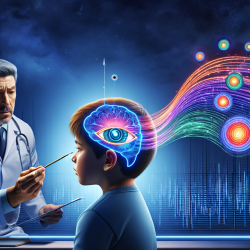Introduction
In the wake of the COVID-19 pandemic, the intersection of behavioral science and public health policy has been brought to the forefront. The research article "A synthesis of evidence for policy from behavioral science during COVID-19" provides a comprehensive evaluation of behavioral science claims that were proposed to mitigate the pandemic's impact. This blog aims to translate these findings into actionable insights for speech-language pathologists, particularly those providing online therapy services to children.
Understanding the Research
The research synthesized evidence from 747 pandemic-related studies to evaluate 19 behavioral science claims. Notably, the research found strong empirical support for claims related to the effectiveness of trusted leaders, positive social norms, and the role of culture and polarization in policy effectiveness. This synthesis underscores the importance of data-driven decision-making in formulating effective interventions.
Implications for Speech Therapy Practitioners
For practitioners in speech-language pathology, particularly those working with children, these findings can be instrumental in enhancing therapy outcomes. Here are key takeaways:
- Trusted Sources: Just as trusted leaders were found to increase adherence to health interventions, trusted figures in a child's life, such as parents and teachers, can play a pivotal role in reinforcing therapy goals. Collaborating with these figures can enhance the effectiveness of therapy.
- Positive Social Norms: Establishing a positive social environment where children see peers engaging in similar therapeutic activities can encourage participation and adherence. This can be facilitated through group sessions or peer modeling.
- Cultural Sensitivity: Understanding the cultural context of each child is crucial. Tailoring therapy to align with cultural values and norms can improve engagement and outcomes.
Encouraging Further Research
The research highlights the need for ongoing evaluation and adaptation of behavioral science insights. Speech therapists are encouraged to engage in continuous professional development and contribute to research by documenting and sharing outcomes of innovative practices. This not only enhances individual practice but also contributes to the broader field of speech-language pathology.
Conclusion
Incorporating evidence-based behavioral science insights into speech therapy can significantly enhance outcomes for children. By leveraging trusted relationships, promoting positive social norms, and being culturally sensitive, practitioners can create more effective and engaging therapy experiences. For those interested in delving deeper into the research, the original paper can be accessed here.










